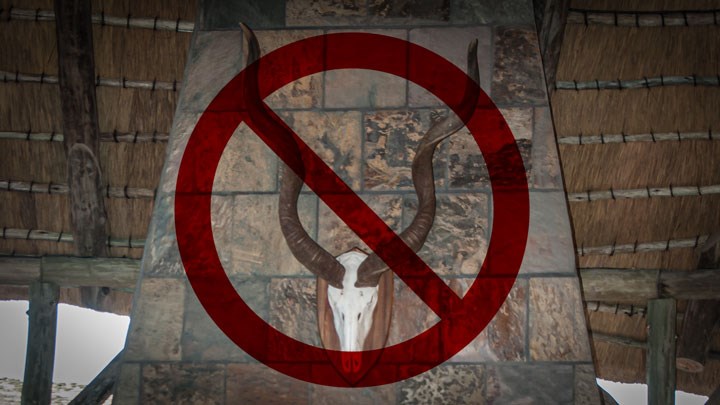
by Mark Chesnut - Thursday, December 16, 2021

In an ill-advised attempt to conserve some species of African wildlife, the British government last week announced plans to ban many African game trophies from being shipped into Great Britain—a move that would actually be detrimental to most African wildlife species.
According to a report from the Washington Post, the proposed ban would cover nearly 7,000 animals, including species like lions, rhinoceroses and elephants. The Post report quoted British Environment Secretary George Eustice as saying that the proposal would help protect global biodiversity and is a central component of London’s commitment to international conservation.
“We are appalled at the thought of hunters bringing back trophies and placing more pressure on some of our most iconic and endangered animals,” Eustice said in a statement.
In truth, as this NRA website has repeatedly explained, such bans are far more dangerous to wildlife species than regulated sport hunting ever could be. Here’s why, in a nutshell.
Import bans will lead to fewer British hunters traveling to places such as Africa on safari. The large amount of money that British, American and European hunters in general bring into various African countries bolsters the economy at all levels and provides the incentive from African government entities to protect habitat and keep wildlife populations healthy. If that incentive is removed by such trophy import bans, wildlife populations are sure to dwindle as habitat is destroyed and land is converted to other uses.
In fact, 128 researchers signed on to a 2019 open letter in the journal Science titled, “Trophy Hunting Bans Imperil Biodiversity,” that detailed how trophy import bans lead directly to habitat loss for that very reason. That’s one reason so many hunter-backed wildlife conservation organizations oppose such a ban.
Last May when United Kingdom officials announced a call for public commentary and evidence concerning the role of hunting as the government began considering banning hunting imports in that country, more than 20 organizations, including the National Rifle Association, sent a letter explaining the importance of hunting as it relates to a trophy ban and wildlife conservation.
“The term ‘trophy hunting’ suggests a false dichotomy between those who hunt wildlife and keep a commemorative part or parts of their hunts and those who do not,” the NRA-signed letter explained. “Under the principles of Game Laws in the U.K. and the North American Model of Wildlife Conservation in the United States and Canada, every hunter is a subsistence hunter. Additionally, every hunter who wishes to commemorate the experience is a trophy hunter, be it through a photograph or through the artform of taxidermy. Regardless, they are all hunters who participate in the same science-based conservation models that fund conservation efforts worldwide.”
As we reported here last year, the act of hunting is recognized by the government of the United Kingdom as an effective and beneficial method of wildlife conservation. Although a hunting trophy import/export ban would not prevent sportsmen there or in the United States from taking part in hunting opportunities, the letter recognized that “the pursuit of game without the ability to commemorate the experience will have a negative impact on the overall economic contribution of the industry.”
The non-profit Property and Environment Research Center (PERC)—a conservation and research institute dedicated to free market environmentalism—has reported extensively on how important regulated sport hunting is to all African wildlife species.
“In much of the world, especially in emerging markets like Africa, habitat conservation depends on making wildlife economically competitive with other land uses,” wrote Catherine Semcer, a research fellow with PERC and an NRA Hunters’ Leadership Forum website contributor, on PERC’s website. “Habitat conversion and degradation—particularly due to crop farming and the herding of livestock—are among the top threats to species’ conservation in Africa and around the globe. Reducing the incentive to transform wildlands into pastures and farms by clearing woodlands and killing wildlife that prey on livestock or compete for forage is essential to conservation.”
If you wonder why American hunters should care about what Great Britain does concerning the importation of hunting trophies, the answer is simple. Because of a potential domino effect, such a move possibly could lead to other nations passing similar bans, which could impact U.S. hunters and additional funding that would go toward wildlife conservation on the Dark Continent.
About the Author
Freelance writer Mark Chesnut is the owner/editorial director at Red Setter Communications LLC in Jenks, Okla. An avid hunter, shooter and field-trialer, he has been covering Second Amendment issues and politics on a near-daily basis for over 20 years, previously serving as editor of the NRA’s America’s First Freedom.
E-mail your comments/questions about this site to:
[email protected]
